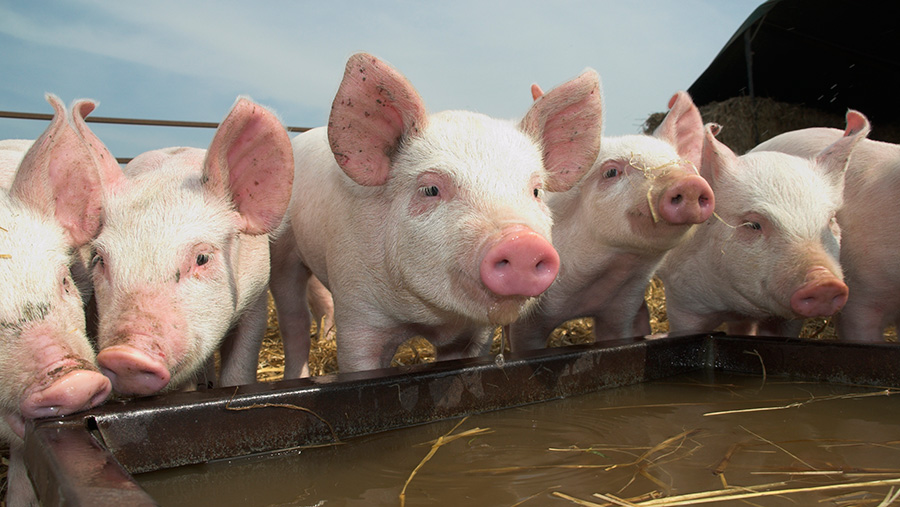Phages could be used as alternative to antibiotics, study shows
 © Gary K Smith/FLPA/Imagebroker/REX/Shutterstock
© Gary K Smith/FLPA/Imagebroker/REX/Shutterstock A breakthrough university study has found it may be possible to use viruses as an alternative to antibiotics to treat common pig infections.
Researchers at Leicester University have identified 20 viruses, called bacteriophages, that combat 72 strains of potentially drug-resistant bacteria that can cause gut problems in pigs.
Bacteriophages or phages are a “natural enemy” that infect and kill bacteria. They work by attaching themselves to a bug and injecting it with its DNA, making it harmless.
See also: Moving drinkers next to hoppers doubles pigs’ feed intake
Scientists have also been able to dry the phages into powder form so they can be orally administered to pigs.
Practical use
The next step is to incorporate the phages into pig feed to see if it works in practice, with trials due to begin later this year.
It is hoped the findings will benefit human medicine too. If trials in pigs work, the new therapy could be extended to treat people.
Speaking to the BBC, Professor Martha Clokie, who led the AHDB-funded study, which began two years ago, said it could be “transformative for human health” in helping to combat growing antibiotics resistance.
“If we can actually stem antibiotics use in the farming industry and treat the animals in a different way, we can prevent the build-up of antibiotics-resistant bacteria in the first place, which means we can preserve antibiotics for humans.”
Welcome development
The development has been welcomed by Ruma, the agricultural and food industry alliance that promotes responsible use of medicines in farm animals.
Ruma secretary general John FitzGerald said: “The issue of antibiotics resistance is one shared by human and animal medicine, and a number of initiatives across medical and veterinary sciences are attempting to understand and reduce the spread of resistance genes in bacteria.
“Phage technology is, in fact, fairly old, but its development stalled because antibiotics were – until recently – very effective against a broad spectrum of bacteria.
“However, the build-up of resistance has created new opportunities for phage technology. A discovery such as this could be a real game-changer, not just helping the farming industry to steward antibiotics more effectively, but potentially speeding up the development of human medical applications.”
‘Natural defence’
Dr Charlotte Evans, technical senior manager with AHDB Pork, explains bacteriophages are found everywhere in the environment, in humans and animals, so they can be regarded as a “natural” defence.
She says: “There’s still a long way to go in terms of trials and licensing, but we are very pleased this research has already yielded such promising results.”
